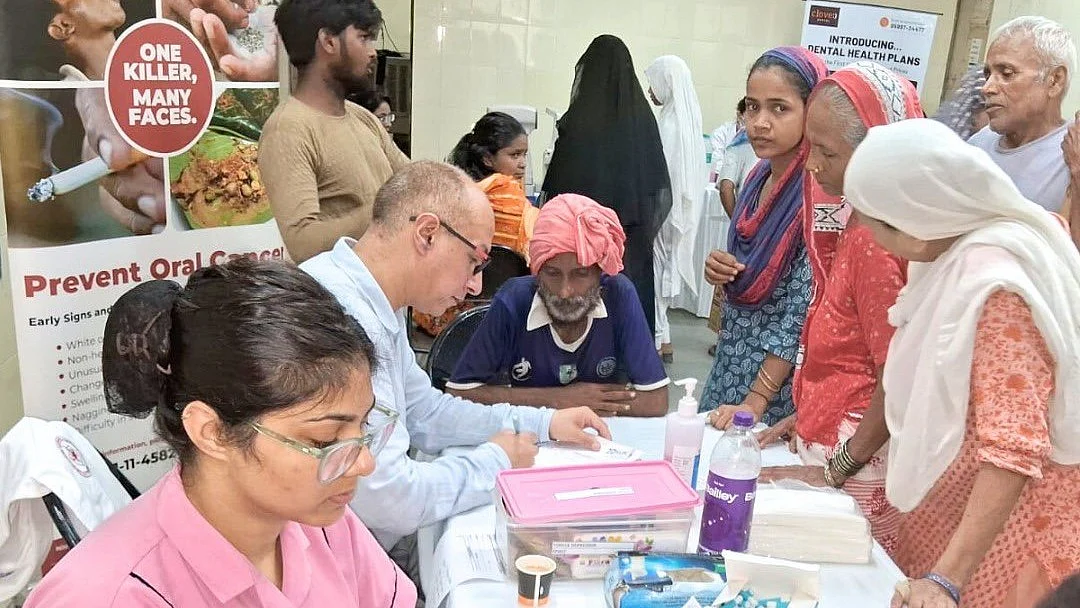In Delhi, new anti-cancer initiative arraigns ASHA workers in the frontline
Unfortunately, only 1 in 5 cases is caught at Stage 1, the most treatable (affordably and successfully)

An initiative to equip Accredited Social Health Activist (ASHA) workers with vital training to detect cervical and breast cancer at the earliest has been launched by the National Association for Reproductive and Child Health of India in collaboration with the Sir Ganga Ram Hospital.
Training was given to ASHA workers in Delhi as part of an annual conference which was held over 8–10 August.
The training covered symptom recognition for cervical and breast cancer referral protocols to ensure patients are guided swiftly to diagnostic centres, and communication skills to break the stigma and fear associated with cancer, Dr Mala Srivastava, president of the Association said.
Delhi chapter ASHAs were also introduced to simple tracking tools, both paper-based and mobile-friendly, to help log suspected cases and follow up effectively.
The sessions were hands-on and interactive, ensuring that health workers left with both the knowledge and the confidence to apply it in their communities, Dr Srivastava said.
The special training session for ASHA workers brought together medical experts and community health champions in a united effort to revolutionise early detection. Together, they pledged to harness the power of community healthcare to improve cancer survival rates by ensuring that the disease is caught before it has the chance to spread.
"Early detection can boost survival rates by over 90 per cent compared to less than 40 per cent for late-stage diagnoses, especially for breast, cervical and oral cancers. By empowering our ASHA heroes to recognise the earliest warning signs of cancer, we're not waiting for disease, we're stopping it before it gains ground.
"With the training of over 150 ASHA workers we are empowering women on the frontlines to become guardians of their community's health and reduce cancer deaths in women," Dr Srivastava said.
Cancer continues to be one of India's most pressing health concerns, with nearly 1.3 million new cases and over 800,000 deaths recorded annually.
Alarmingly, only one in five cases is detected at Stage 1, when treatment is far more effective and the chances of survival significantly higher, Dr Srivastava said.
Dr Chandra Mansukhani, vice president of the Association's Delhi Chapter said, "A single ASHA equipped with knowledge becomes a network of hope in her community. Detecting cancer at Stage 1 means treatment is more affordable, less invasive and far more effective. This grassroots approach not only strengthens the public health system but also builds trust between communities and medical institutions."
With each ASHA typically serving around 1,000 individuals, the potential reach of this programme is immense.
In its first year alone, the initiative is expected to bring cancer awareness and screening opportunities to over 1 million people in Delhi, Dr Mansukhani said.
Scaling it up across the city and eventually nationwide could save thousands of lives and bring about a paradigm shift in the way India approaches cancer prevention.
Dr Geeta Mendiratta, chairperson of the Institute of Obstetrics and Gynaecology, Sir Ganga Ram Hospital, said, "When community knowledge meets clinical expertise, Stage 1 can become the default stage of cancer detection. As doctors, we must meet communities where they are.
"This initiative marks a transformational partnership between hospitals and grassroots health workers. Together, we can make Stage 1 detection the norm, not the exception," she said.
Over the next year, pilot areas across all districts of Delhi will be covered, Dr Srivastava said.
ASHAs will organise regular screening camps in neighbourhoods and schools, supported by hospital mentors to ensure accuracy and quality of detection.
Digital dashboards will be used to track the number of screenings, referrals, and confirmed early-stage diagnoses, ensuring transparency and measurable impact.
Follow us on: Facebook, Twitter, Google News, Instagram
Join our official telegram channel (@nationalherald) and stay updated with the latest headlines
